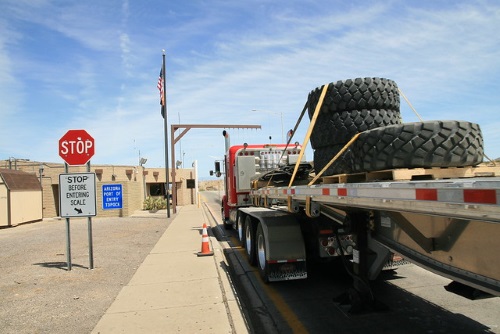A final rule issued by the Federal Motor Carrier Safety Administration on July 16 that permanently bans drivers convicted of human trafficking from operating a commercial motor vehicle or CMV is the latest deterrent effort launched by a U.S. Department of Transportation agency, based in part from a final report submitted by USDOT’s Advisory Committee on Human Trafficking on July 2.
FMCSA’s new rule prohibits an individual from operating a CMV for life if that individual uses a CMV in committing a felony involving a severe form of human trafficking. The new rule revises the list of offenses permanently disqualifying individuals from operating a CMV for which a commercial driver’s license or a commercial learner’s permit is required.

“The commercial motor vehicle industry is uniquely positioned to help detect and report human trafficking, and thankfully professional drivers’ efforts often bring an end to these tragic situations. Sadly, however, some human trafficking activities are facilitated by the use of commercial trucks or buses,” said FMCSA Administrator Raymond Martinez in a statement.
“By enforcing a lifetime ban on any CMV driver convicted of severe human trafficking, we aim to deliver a strong and effective deterrent to this abhorrent behavior,” he added. “If a commercial driver is convicted of using their commercial motor vehicle related to human trafficking – that person will never be driving interstate commercial vehicles again.”
Several state departments of transportation are battling human trafficking via their own programs and the new USDOT report provides further guidance on what they can do to further thwart such criminal behavior. Recommendations from the 128-page report include:
- Expanding available funding for counter-trafficking activities by state entities with transportation equities.
- States without human trafficking task forces should convene state agency stakeholders to form state-level human trafficking commissions, councils, or task forces and ensure inclusion of their respective state DOTs and state department of motor vehicles.
- States, including state DOTs, should consider adopting a zero-tolerance policy regarding human trafficking and include zero-tolerance clauses in contractual agreements with companies, agencies, and other stakeholders across all state transportation agencies.
- Implement survivor-informed, mode-specific comprehensive strategies with corresponding policies and reporting protocols, including who to call when reporting human trafficking indicators.
 Nation
Nation
The Stream by AASHTO: Electrified Roadway Testing
December 5, 2025 Nation
Nation

